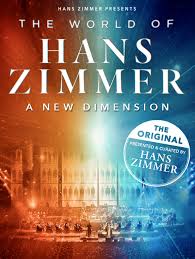
Introduction
Hans Zimmer, a name synonymous with epic film scores, has profoundly influenced the movie industry with his innovative compositions. With a career spanning over three decades, Zimmer has created some of the most memorable music in cinema history. His work not only enhances storytelling but also evokes deep emotional responses from audiences worldwide, making it paramount to explore his artistic journey and impact on film music.
A Glimpse Into His Career
Born on September 12, 1957, in Frankfurt, Germany, Hans Zimmer began his musical journey at a young age. He started playing the piano at age 6 and was greatly influenced by European composers and American rock music. Zimmer’s career took a significant turn when he moved to the United States in the early 1980s. His breakthrough came with the score for Rain Man in 1988, which earned him an Academy Award nomination.
Since then, Zimmer has collaborated with some of the biggest names in Hollywood, scoring films such as The Lion King, for which he won an Oscar; Gladiator; Inception; and the Dark Knight trilogy. His distinctive style often blends electronic music with orchestral arrangements, creating rich soundscapes that resonate with viewers. Moreover, Zimmer is known for his ability to adapt his music to fit various genres, making him a sought-after composer across multiple film types.
Recent Developments
In recent years, Zimmer has continued to push the boundaries of film music. He recently composed the score for Denis Villeneuve’s highly anticipated adaptation of Dune, which has received critical acclaim for its ability to enhance the film’s otherworldly narrative. Zimmer’s innovative approach in combining traditional orchestration with new digital techniques underscores his adaptability as an artist in an ever-evolving industry.
The Impact and Significance
Zimmer’s influence extends beyond just awards and accolades. His music often transcends the film medium, reaching concert halls and audiences worldwide through live performances and recordings. Projects like ‘Hans Zimmer Live’ showcase his ability to perform and conduct, bringing film music to life in a new way.
Conclusion
The legacy of Hans Zimmer is one of innovation, creativity, and profound impact on the way music is integrated into film. As he continues to explore new musical landscapes, one can only anticipate what future projects will unfold. For those who appreciate the power of music in storytelling, Hans Zimmer remains an unparalleled maestro whose work will continue to inspire both filmmakers and audiences alike.
You may also like

The Evolving Career of Louis Tomlinson

Jay Z: The Evolution of a Music Legend

The Lasting Legacy of Amy Winehouse
SEARCH
LAST NEWS
- Remembering Wendy Richard: The Promise to Co-Star Natalie Cassidy
- How Did Anglian Water Achieve an ‘Essentials’ Rating for Mental Health Accessibility?
- Shai Hope Leads West Indies in T20 World Cup Clash Against South Africa
- What We Know About Weston McKennie: Future at Juventus and Past at Leeds
- What We Know About the Upcoming Live Nation Antitrust Trial